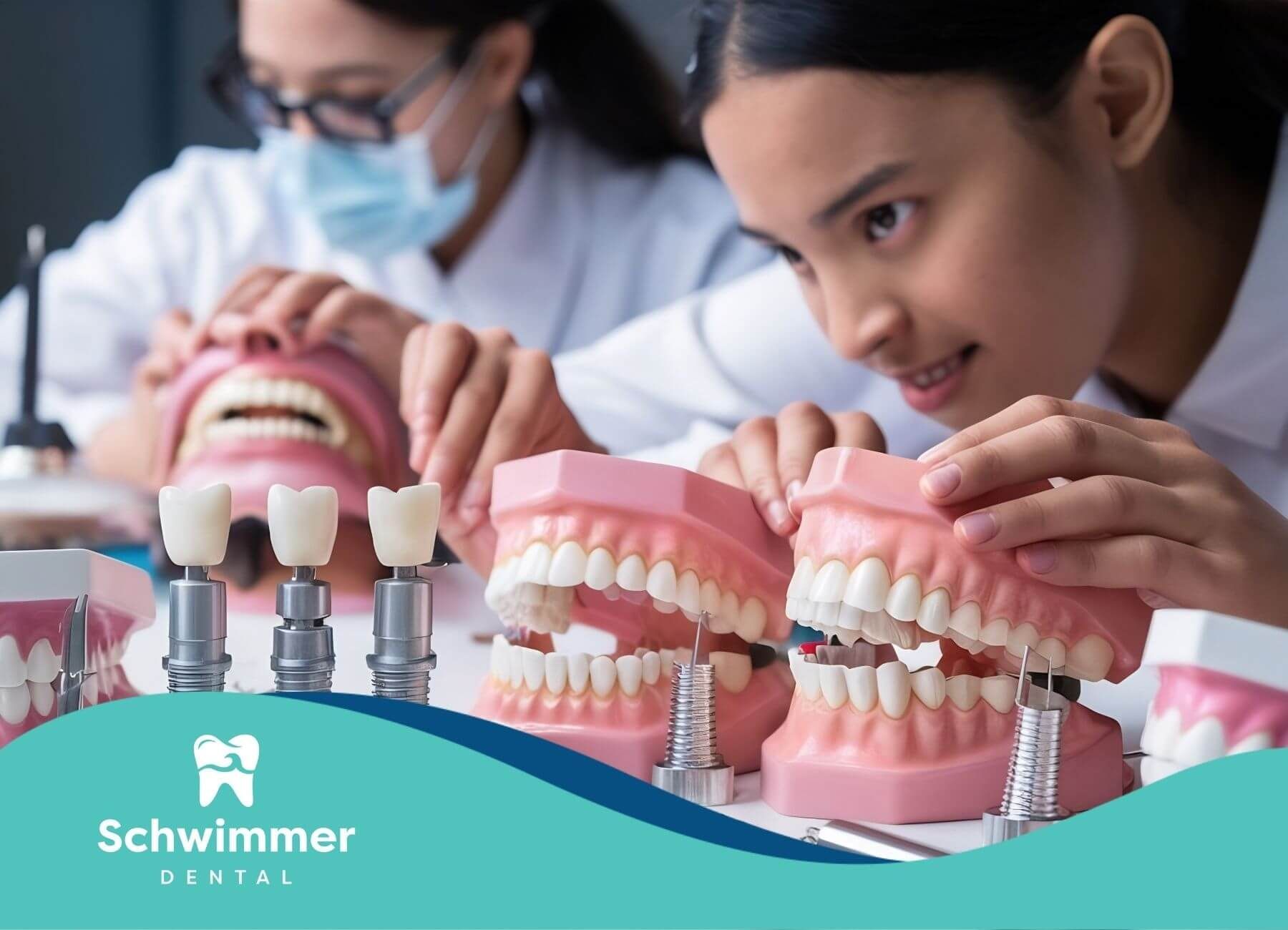Daily Habits for a Healthier Tongue and Oral Care Routine
Key Highlights
- Adopting essential daily oral hygiene habits, such as proper brushing, flossing, and tongue cleaning, is critical for maintaining a healthy mouth and preventing oral diseases.
- Good oral hygiene helps safeguard overall health by reducing harmful bacteria that can spread to the bloodstream.
- Poor oral hygiene can result in issues like bad breath, gum disease, and even oral cancer if neglected long-term.
- Simple yet effective tools like a soft-bristled toothbrush, floss, and tongue scraper form the cornerstone of optimal oral health practices.
- Explore the benefits of proper tongue cleaning, such as enhanced taste perception, fresher breath, and reduced oral bacteria levels.
- Learn answers to common oral health concerns, such as the frequency of dental visits and the signs of compromised tongue health.
Oral hygiene isn't just about brushing and flossing. It’s about creating a comprehensive routine that includes all parts of your mouth, from your teeth to your gums to your tongue.
As a dentist in NJ, I encourage my patients to adopt these simple but essential practices for better oral health. In this post, I’ll give you the daily tips you need to achieve optimal oral hygiene and keep your smile shining bright.
Understanding the Importance of Tongue and Oral Health
Oral health isn't isolated to your mouth alone. It affects your entire body. As a dentist, I’ve seen how an ignored oral care routine can lead to significant health problems beyond cavities and gum disease.
For example, research has shown that harmful bacteria from the mouth can enter the bloodstream, potentially leading to issues like heart disease, diabetes, and even strokes.
The Connection Between Oral and Overall Health
The mouth is a gateway to your body, and bacteria from poor oral care can travel through the bloodstream to other parts of your body.
According to the American Heart Association, untreated gum disease has been linked to an increased risk of heart disease. Maintaining good oral hygiene, including tongue cleaning, can help reduce the spread of these bacteria, promoting better overall health.
How Oral Health Affects Overall Well-being
Your oral health affects much more than just your teeth. In fact, there’s a clear link between poor oral hygiene and several systemic diseases. Bacteria from untreated oral infections, such as gum disease, can travel through the bloodstream, impacting various organs.
The Impact of Gum Disease on Heart Health
Research published in Circulation, a leading medical journal, has found that individuals with gum disease are twice as likely to develop heart disease compared to those with healthy gums. This shows how a small problem in the mouth can escalate into serious health conditions.
By brushing, flossing, and cleaning your tongue daily, you can reduce the harmful bacteria in your mouth and lower the risk of these health problems.
Common Consequences of Poor Oral Hygiene
When oral hygiene is neglected, a host of issues can arise—both inside and outside your mouth. Here are a few common consequences:
Bad Breath (Halitosis)
Bad breath, or halitosis, is often caused by bacteria on your tongue, which can feed on leftover food particles and produce foul-smelling compounds. A clean tongue significantly reduces the number of bacteria, leading to fresher breath.
Gum Disease
Gingivitis, the earliest stage of gum disease, occurs when plaque builds up along the gum line. If left untreated, this can progress to periodontitis, a serious condition that can lead to tooth loss.
Tooth Decay
Tooth decay is caused by plaque, which contains harmful bacteria that can break down enamel and lead to cavities. Regular brushing and flossing remove this plaque and help prevent decay.
Oral Cancer
In some cases, chronic inflammation in the mouth—caused by poor oral hygiene and habits like smoking—can increase the risk of oral cancer. According to the American Cancer Society, over 50,000 people are diagnosed with oral cancer each year, making early detection and prevention crucial.
Daily Oral Hygiene Practices for a Healthy Mouth
A consistent oral hygiene routine is essential for maintaining a healthy mouth. Here’s how you can get started:
Brushing
Brushing your teeth is the cornerstone of good oral hygiene. Aim to brush twice a day using fluoride toothpaste. Use a soft-bristled toothbrush and make sure to brush for at least two minutes, reaching all surfaces of your teeth.
Flossing
Flossing removes food particles and plaque between your teeth—areas that a toothbrush can’t reach. By incorporating flossing into your routine, you can keep your gums healthy and reduce the risk of tooth decay and gum disease.
Cleaning Your Tongue
Your tongue plays a vital role in your oral health. A coated tongue can harbor bacteria, contributing to bad breath and other oral health problems. Cleaning your tongue is simple but incredibly effective.
Regular Dental Checkups
In addition to daily habits, regular dental visits are essential. These checkups help catch potential issues early, preventing more severe problems down the road.
Proper Tooth Brushing Techniques and Frequency
The way you brush matters just as much as how often you brush. Here’s the right way to brush for optimal results:
Brushing Tips
- Use a soft-bristled toothbrush: Hard bristles can harm your gums and enamel. A soft brush is gentler and still effective.
- Brush twice a day: Brushing in the morning and before bed is essential to keep your teeth and gums healthy.
- Brush for two minutes: Make sure to spend at least two minutes brushing your teeth to remove plaque and food particles.
Why Technique Matters
It’s not just about brushing the surface of your teeth; you need to reach the backs, the chewing surfaces, and along the gum line. Holding your toothbrush at a 45-degree angle helps you clean these areas more effectively. It’s also important to avoid brushing too hard, as this can wear down your enamel and irritate your gums.
The Role of Flossing and Interdental Cleaning
Flossing is a crucial part of your daily oral hygiene routine. It cleans the spaces between your teeth, where plaque and food particles often accumulate.
Flossing Tips
- Use gentle pressure: Slide the floss between your teeth gently to avoid injuring your gums.
- Don’t skip it: Flossing once a day removes particles and prevents plaque buildup that can lead to cavities and gum disease.
Alternatives to Flossing
If traditional flossing isn’t your thing, there are other tools that can help:
- Interproximal brushes: These small brushes are great for cleaning between teeth, especially if you have wider gaps.
- Water flossers: These use a stream of pulsating water to remove debris from between your teeth. While effective for rinsing, water flossers don’t remove plaque biofilm, so they should be used in addition to traditional flossing.
Effective Tongue Cleaning Habits
Cleaning your tongue is often an overlooked step in oral hygiene, but it plays a crucial role in maintaining a fresh mouth and healthy tongue. Here's how you can make tongue cleaning a part of your routine:
Tools for Tongue Cleaning
- Tongue scraper: A tongue scraper is the best tool for the job. Gently scrape your tongue from the back to the front to remove bacteria, food particles, and dead cells.
- Toothbrush: If you don’t have a tongue scraper, you can use your toothbrush to clean your tongue. Just be sure to use gentle strokes to avoid triggering a gag reflex.
When to Clean Your Tongue
You should clean your tongue every time you brush your teeth—ideally twice a day. This simple step helps keep your mouth fresher and reduces the likelihood of bad breath.
Benefits of Cleaning Your Tongue Regularly
Regular tongue cleaning has a number of benefits:
Eliminates Bad Breath
By removing the bacteria and debris on your tongue, you can prevent the buildup of sulfur compounds that contribute to bad breath.
Supports Gum Health
Cleaning your tongue reduces the bacteria that can spread to your gums, helping prevent gum disease.
Enhances Taste
A clean tongue means better-tasting food. The bacteria and coating that accumulate on your tongue can interfere with your taste buds, making food less enjoyable.
Best Tools and Methods for Tongue Cleaning
Here’s how to effectively clean your tongue:
- Tongue Scrapers: Stainless steel or plastic tongue scrapers are ideal. Be gentle when scraping from back to front, and avoid overdoing it to prevent a gag reflex.
- Toothbrush: If you don’t have a scraper, use the back of your toothbrush to clean your tongue. Make sure to rinse thoroughly after.
After Cleaning Your Tongue
Once you’ve cleaned your tongue, rinse your mouth with water or mouthwash. This helps remove any remaining debris and keeps your mouth feeling fresh.
Conclusion
Maintaining optimal tongue and oral health is essential for both your oral hygiene and overall health. By incorporating simple daily habits like brushing, flossing, and tongue cleaning, you can prevent serious oral health issues and reduce your risk for other health conditions. A healthy mouth truly is the gateway to a healthier body.
At Schwimmer Dental, we’re dedicated to helping you maintain optimal oral health with personalized care and expert guidance. If you’re looking for more advice on how to improve your daily oral hygiene or need to schedule a checkup, our team is here to help.
Contact us today to book an appointment and take the next step towards a healthier mouth and body. Your smile deserves the best care, and we’re here to provide it!
Frequently Asked Questions
What are the signs of poor tongue health?
Indicators to look for are white patches, small bumps, soreness that doesn’t go away, or signs of oral lichen planus and thrush. These changes can be a sign of other problems. If you see any of these, it’s good to visit a dentist right away for a check and the right treatment.
How often should I clean my tongue?
To get good oral hygiene, you should clean your tongue every day. You can use a tongue scraper or a toothbrush to do this. It will help you keep a healthy tongue. This also stops bad bacteria and dirt from building up on your tongue.
Are there specific foods that promote oral health?
Yes, foods that help make more saliva like fruits, vegetables, and dairy can help make tooth enamel stronger. These foods are good for your oral health. Try not to eat foods with a lot of sugar. They make decay more likely and can damage dental work.
Sources:
- https://pmc.ncbi.nlm.nih.gov/articles/PMC11276146/
- https://my.clevelandclinic.org/health/symptoms/24600-tongue-color
- https://www.webmd.com/oral-health/ss/slideshow-tongue-your-health
- https://www.mayoclinic.org/healthy-lifestyle/adult-health/in-depth/dental/art-20047475
- https://my.clevelandclinic.org/health/diseases/24735-tongue-problems



